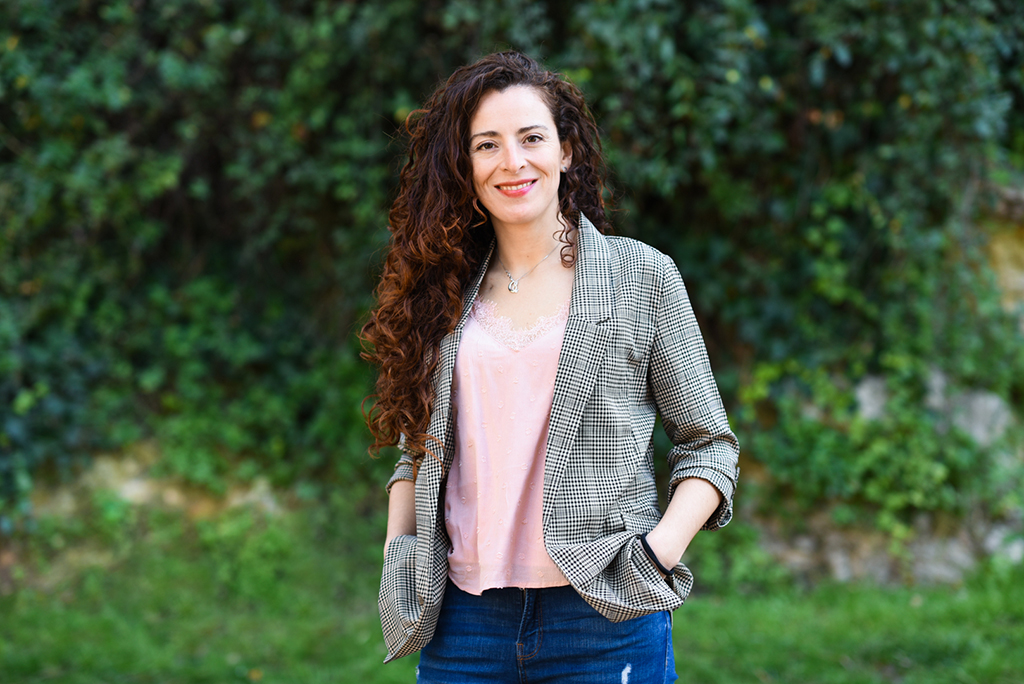In our series of interviews with leading figures from the world of entrepreneurship, we listen to people who demonstrate that entrepreneurship is, increasingly, a real option chosen by many. Profiles united by an enthusiastic attitude, commitment and ongoing innovation.
Cristina Sáenz de Pipaón is a clear example. After completing a PhD and post-doctorate in Physics, she left academia to start her own company in 2017: Orchestra Scientific, dedicated to optimising the CO2 capture process through the development of highly selective membranes that allow CO2 to be separated from other gases. This startup was one of the winners of the last edition of the Ingenia Energy Challenge, awards promoted by Enagás Emprende for the investment and acceleration of startups and innovative technologies in the field of energy transition and decarbonisation.
After this enriching experience, she has recently joined Ship2B Foundation, specialised in promoting the so-called “Impact Economy”, the one in which start-ups, companies, investors and organisations not only seek to maximise their economic profitability, but also their social and environmental impact.
We talked to her about her beginnings, her experience as an entrepreneur and the importance of innovation to achieve climate neutrality goals.

Cristina Sáenz de Pipaon, S2B Tech4Climate Manager
I don’t think there was a single motive. On the one hand, I think that entrepreneurship requires a restless and proactive personality, capable of accepting risk and feeling comfortable with it.
Not everyone is entrepreneurial or comfortable working in a risky environment; and at the same time, not all restless people are entrepreneurial. Timing and opportunity play a very important role here. There also needs to be an opportunity that attracts us and the timing has to be right.
With Orchestra we identified a very good opportunity, the possibility of exploiting a patent of a material with extraordinary characteristics of the Catalan Institute of Chemical Research, and the best way was to form a spin-off. The timing was ideal, a group of people who complemented each other and had the same goal, the founding team of Orchestra, got together.
To make up my mind, I have always believed that the investment made in R&D must at some point contribute to our society, either in the form of basic knowledge or in the form of innovation brought to industry. It was time to look for the economic return on the investment made in this research.
“I have always believed that the investment made in R&D must at some point contribute to our society”
Starting a business is a hazardous endeavour, and any support is more than important, it is vital. This support can come in the form of investment, mentoring, collaboration agreements for development or testing, or simply natural partnerships in pursuit of the same goal.
The economic investment of a third party is key to the viability of a company. Of course, there are public subsidies and grants, but they take time to arrive, and time to respond and get to market is critical. A well-managed investment can also accelerate the get-to-market process, not just make it viable.
But often, external support is even more important in other matters, such as access to their know-how and facilities for testing, access to other potential partners or customers, the proof of trust shown by having a consolidated partner…
Innovation and technology transfer are the engine of the change we need. Not only for an ecological transition, but for a change in our production model.
In recent years, the activity between research centres and industry has started to be populated with initiatives, support and aid to promote transfer. We are heading in the right direction, but we still need to strengthen the relationship between industry and applied research. Many times, the only way to overcome this desert is through entrepreneurship.
Entrepreneurship is going to be one of the keys if we are to meet the EU’s 2030 climate and energy action targets.
“Innovation and technology transfer are the engine of the change we need. Not only for an ecological transition, but for a change in our production model”
From my experience, the number of female entrepreneurs is increasing in recent years, but it is still lower than the number of men who do it. Other differences can also be observed. Female profiles tend to be less aggressive and more realistic in terms of financial forecasts and company valuation, which in certain initial stages can be detrimental to them. They also devote more interest, time and resources to the social and environmental impact of their companies. Of course, these are trends, as each entrepreneur is unique with their own style.
If any woman reading this is at a crossroads thinking about entrepreneurship, my advice is to reflect for a moment. Do you have an idea or product that solves a problem, need or market challenge? Do you firmly believe in your proposal and are you willing to take a risk? If the answer is yes, then you only need to take the first step. And that first step is best taken in company. Incubators and accelerators offer support when it comes to validating our business model, seeking funding, partners or customers; but there is no doubt about the value that the entrepreneurial community in Spain can bring, openly supporting and mentoring new projects. Besides, what better way to support female entrepreneurship than from the sorority between female entrepreneurs?